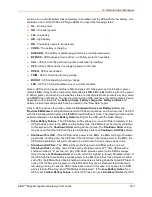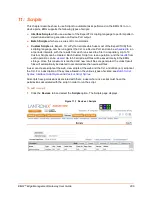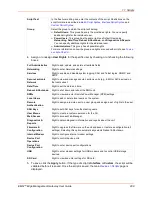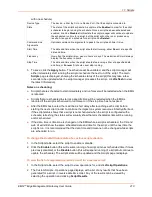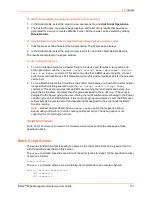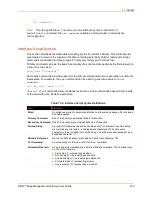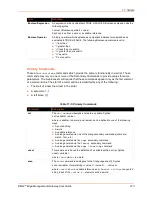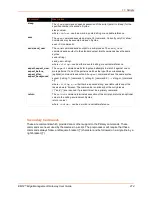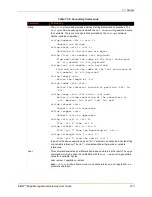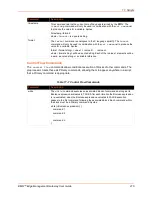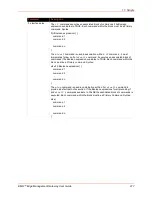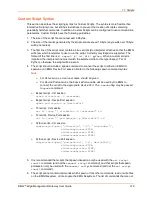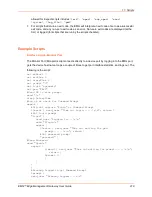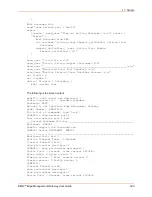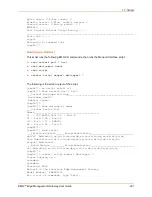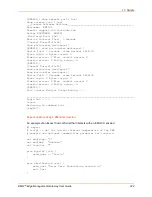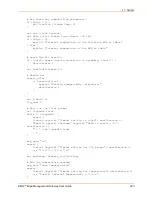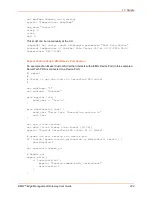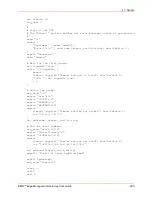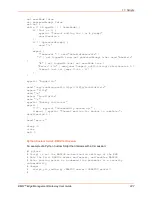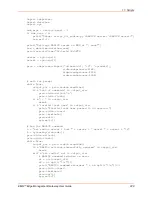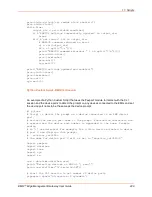
11: Scripts
EMG™ Edge Management Gateway User Guide
214
Secondary Commands
These are commands which provide data or other support to the Primary commands. These
commands are never used by themselves in a script. The preprocessor will require that these
commands always follow a left square bracket ('[') character and be followed on a single line by a
right bracket (']').
sleep
The
sleep
command suspends execution of the script (puts it to 'sleep') for the
specified number of seconds. Syntax:
sleep <value>
where
<value>
can be a word, a quoted string or a variable reference.
exec
The
exec
command executes a single CLI command. Currently only CLI 'show'
commands may be executed via exec. Syntax:
exec <CLI command>
send, send_user
The
send
command sends output to a sub-process, The
send_user
command sends output to the standard output. Both commands have the same
syntax:
send <string>
send_user <string>
where
<string>
can be either a quoted string or a variable reference.
expect, expect_user,
expect_before,
expect_after,
expect_background
The
expect
command waits for input and attempts to match it against one or
more patterns. If one of the patterns matches the input the corresponding
(optional) command is executed. All
expect
commands have the same syntax:
expect {<string 1> {command 1} <string 2> {command 2} ... <string n> {command
n}}
where
<string x>
will either be a quoted string, a variable reference or the
reserved word 'timeout.' The command x is optional, but the curly braces
('
{
' and '
}
') are required. If present it must be a primary command.
return
The
return
command terminates execution of the script and returns an optional
value to the calling environment. Syntax:
return <value>
where
<value>
can be a word or a variable reference.
Command
Description




